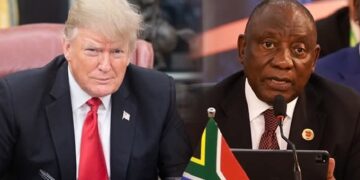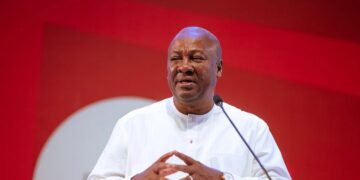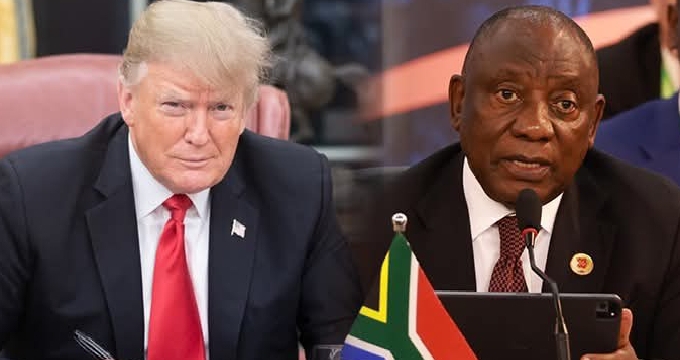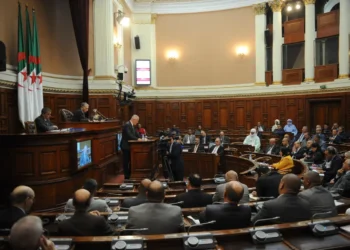By Enyichukwu Enemanna
United States parliament has voted to advance a bill that proposes the review of the U.S. relationship with South Africa due to objections over its foreign policy and potentially imposing sanctions on Pretoria’s officials.
The U.S. House Committee on Foreign Affairs voted 34-16 on Tuesday to send the “U.S.-South Africa Bilateral Relations Review Act” to the full House of Representatives, where it could be subject to a vote, according to a video of the proceedings.
The process is expected to scale through both the House and the Senate before it could be signed into law by President Donald Trump.
The House Committee’s approval took the bill a step further and underscored tensions between Washington and Pretoria as South Africa seeks to fend off a looming 30% U.S. tariff and counter false claims of white “genocide” made by Trump.
The bill was first introduced in April by Ronny Jackson, a Republican parliamentarian from Texas who cheered the move on X.
He wrote, “South Africa made its choice when they abandoned America and our allies and sided with communists and terrorists”.
The bill accuses South Africa of undermining U.S. interests by maintaining close relationships with Russia and China, which are among its allies and trading partners.
It also accuses South Africa of backing Palestinian militant group Hamas that is at war in Gaza with Israel, an accusation the South Africa has denied.
South Africa has never denied its backing for Palestinian cause. During the Israeli onslaught against Hamas, Pretoria filed a case accusing Israel of genocide before the International Court of Justice in 2023. This was also mentioned in the bill as one of South Africa’s offences.
The bill proposes “a full review of the bilateral relationship” and to “identify South African government officials and ANC leaders eligible for the imposition of sanctions”.
South Africa’s relationship with the United States has sharply deteriorated since Trump returned to office in January.
He has accused President Cyril Ramaphosa of of anti-white racism and announced with withdrawal of financial aids to South Africa.
During Ramaphosa’s visit to Washington in May, he denied seizing lands belonging to white farmers and killing them. Trump has since started a refugee programme for whites living in South Africa, often referred to as Afrikaners, who are descendants of European settlers.



































